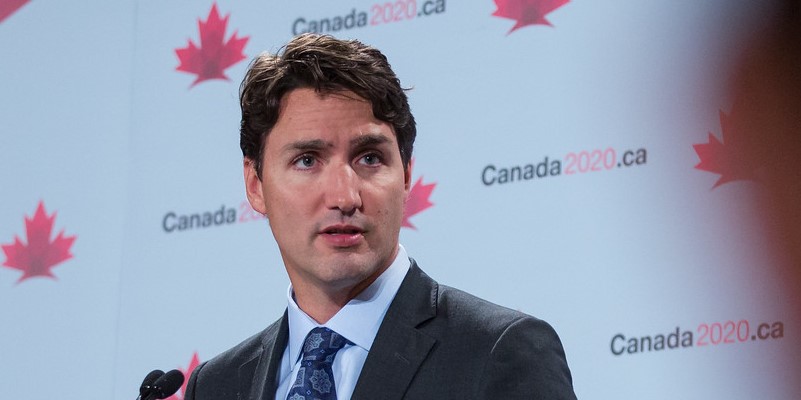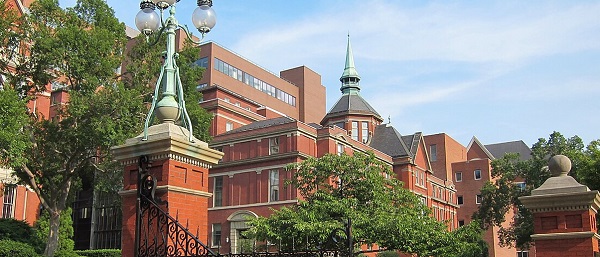National
Federal debt interest will consume nearly one quarter of income tax revenue in 2024

From the Fraser Institute
By Grady Munro and Jake Fuss
The Trudeau government will table its next budget on April 16. In recent years, the government has overseen a substantial rise in the amount of interest it must pay to service federal debt, reversing a long-standing trend of interest costs declining relative to personal income tax revenues. By 2024/25, according to projections, nearly one in four dollars of personal income tax revenue will go towards debt interest.
Just like how individuals must pay interest when they take out a mortgage, the government must also pay interest when it borrows money. These interest payments represent taxpayer dollars that don’t go towards programs or services for Canadians.
When interest costs rise faster than the government’s ability to pay—i.e. the revenues it brings in—the government will face pressure to take on more debt to maintain funding for programs and services. And by taking on more debt, this places additional upward pressure on interest costs (all else equal) and the cycle repeats.
A useful way to track this is to measure debt interest costs as a share of federal personal income tax (PIT) revenues, which represent Ottawa’s single-most important revenue source. In 2024/25, they’re expected to comprise just under half (46.4 per cent) of total revenues and therefore provide a useful gauge of the government’s ability to pay interest on its debt. As such, the chart below includes projections for federal debt interest costs as a share of PIT revenues for the two decades from 2004/05 to 2024/25.
As we can see from the chart, for many years federal debt interest costs had been declining as a share of Personal Income Tax revenues. In 2004/05, 34.6 per cent of PIT revenues went towards servicing federal debt, but by 2015/16 that share had fallen to 15.1 per cent. In other words, during the Trudeau government’s first year in office, federal interest costs consumed less than one in six dollars of personal income tax revenue paid by Canadians. Interest costs as a share of PIT revenues continued to fall for the next several years, down to a low of 11.7 per cent in 2020/21. However, this marked the end of the decline, and the years since have seen rapid growth in debt interest costs that far exceeds growth in PIT revenues.
In the two years from 2020/21 to 2022/23, federal interest payments rose from 11.7 per cent of PIT revenues to 16.8 per cent. And by the end of the upcoming fiscal year in 2024/25, debt interest payments will reach a projected 23.4 per cent of PIT revenues. In four years, debt interest payments are expected to have gone from consuming about one in nine dollars of PIT revenue to nearly one in four dollars. Put differently, nearly one quarter of the money taxpayers send to Ottawa in the form of personal income taxes will not go towards any programs or services in 2024/25.
The causes of this sudden rise in interest costs as a share of PIT revenues are the combined effects of a substantial accumulation of debt under the Trudeau government, and a recent rise in interest rates. From 2015/16 to 2022/23, the Trudeau government added $820.7 billion in gross federal debt, and by 2024/25 total debt will reach a projected $2.1 trillion—roughly double the amount inherited by the current government. Meanwhile, from 2022 to 2023, the Bank of Canada increased its policy interest rate from a low of 0.25 per cent to the current rate of 5.00 per cent.
Simply put, federal debt interest costs have risen and are expected to eat up almost one quarter of federal PIT revenues by 2024/25. To help prevent taxpayers from devoting an even larger share of their tax dollars towards debt interest, the Trudeau government should cease its heavy reliance on borrowing in this year’s federal budget.
Authors:
Energy
It should not take a crisis for Canada to develop the resources that make people and communities thrive.

From Resource Works
Canada is suddenly sprinting to build things it slow-walked for a decade.
“Canada has always been a nation of builders, from the St. Lawrence Seaway to Expo 67. At this hinge moment in our history, Canada must draw on this legacy and act decisively to transform our economy from reliance to resilience. We are moving at a speed not seen in generations,” announced Prime Minister Mark Carney at the end of August.
He was echoed by British Columbia Premier David Eby shortly after.
“There’s never been a more critical time to diversify our economy and reduce reliance on the U.S., and B.C. is leading the way in Canada, with clean electricity, skilled workers and strong partnerships with First Nations,” the premier stated after his government approved the Ksi Lisims LNG project, led by the Nisga’a nation.
In the face of President Donald Trump’s tariffs, Ottawa has unveiled a first wave of “national projects” that includes an expansion of LNG Canada to 28 million tonnes a year, a small modular reactor at Darlington, two mines, and a port expansion, all pitched as a way to “turbocharge” growth and reduce exposure to a trade war with the United States.
The list notably excludes new oil pipelines, and arrives with rhetoric about urgency and nation-building that begs a simple question: why did it take a crisis to prioritize what should have been routine economic housekeeping?
The most tangible impact of resource projects can be observed in the impact it has on communities. The Haisla Nation is enjoying an economic renaissance with their involvement in the LNG Canada project on their traditional lands, which became operational in June.
Furthermore, the Haisla are set to unveil their own facility, Cedar LNG, in 2028. Already, the impact of employment and strong paycheques in the community is transforming, as former Haisla Chief Councillor Crystal Smith as attested many times.

Former Haisla Chief Councillor Crystal Smith.
“Let’s build a bright and prosperous future for every Canadian and every Indigenous person that wants to be involved, because change never happens inside of our comfort zones, or the defensive zone,” said Crystal Smith at a speech delivered to the 2025 Testimonial Dinner Award on April 24 in Toronto.
Fortunately, the new pro-resource posture has a legislative backbone. Parliament passed the One Canadian Economy Act to streamline approvals for projects deemed in the national interest, a centrepiece of the government’s plan to cut internal trade barriers and fast-track strategic infrastructure.
Supporters see it as necessary in a period of economic rupture, while critics warn it risks sidelining Indigenous voices in the name of speed. Either way, it is an admission that Canada’s previous processes had become self-defeatingly slow.
British Columbia offers a clear case study. Premier David Eby is now leaning hard into liquefied natural gas. His government and Ottawa both approved the Nisga’a Nation-backed Ksi Lisims LNG project under a “one project, one review” approach, with Eby openly counting on the Nisga’a to build support among neighbouring nations that withheld consent.
It is a marked turn from earlier NDP caution, framed by the premier as a race against an American Alaska LNG push that could capture the same Asian markets.
Yet the pivot only underscores how much time was lost. For years, resource projects faced overlapping provincial and federal hurdles, from the Impact Assessment Act’s expanded federal reach to the 2018 federal tanker ban on B.C.’s north coast.
Within B.C., a thicket of regulations, policy uncertainty, and contested interpretations of consultation obligations chilled investment, while political positions on pipelines hardened. Industry leaders called it “regulatory paralysis.” These were choices, not inevitabilities.
The national “go-fast” stance also arrives with unresolved tensions. Ottawa has installed a Calgary-based office to clear and finance major projects, led by veteran executive Dawn Farrell, and is touting the emissions performance of LNG Canada’s expansion.

Dawn Farrell, head of the Major Projects office in Calgary.
At Resource Works, we wholeheartedly endorsed the move, given the proven ability and success of Dawn Farrell in the resource industry. It must also be acknowledged that the major projects office will only be an office unless it meaningfully makes these projects happen faster.
A decade that saw eighteen B.C. LNG proposals produced one major build, and moving to LNG Canada’s second phase is entangled with power-supply constraints and policy conditions. That slow cadence is how countries fall behind.
If the current urgency becomes a steady habit, Canada can still convert this scramble into lasting capacity. If not, the next shock will find us sprinting again, only further from the finish line.
Resource Works News
Energy
A picture is worth a thousand spreadsheets

From Resource Works
What if the secret to understanding Canada’s energy future lies not in spreadsheets but in storytelling?
When I think about who has done the most to make sense of Canada’s energy story — not just in charts and forecasts but in human terms — Peter Tertzakian sits near the top of that list. He’s an energy economist, author, and communicator who has spent decades helping Canadians understand the world beneath their light switches and fuel gauges — and why prosperity, energy, and responsible development are inseparable.
Peter is the founder and CEO of Studio.Energy. He is also widely known as the founder of the ARC Energy Research Institute and co-host of the ARC Energy Ideas podcast, alongside Jackie Forrest. Week after week, they unpack what’s happening in the markets, in technology, and in policy, always with the rare gift of clarity. He’s also the author of two influential books, A Thousand Barrels a Second and The End of Energy Obesity, both written long before “energy transition” became a household term.
When we sat down for our Power Struggle conversation, I mentioned how remarkable it is that someone with Peter’s credentials — an economist, investor, and advisor to industry — is also an exhibiting artist whose photography can regularly be found in a gallery in the Canadian Rockies. That’s when he smiled and said what has become one of his signature lines: “I’ve always said a picture is worth a thousand spreadsheets.”

What followed was a fascinating discussion about how visual storytelling can bridge the gap between data and understanding. Peter explained that what began as a hobby has evolved into a personal quest to communicate complex energy subjects more effectively. His photographs, which range from industrial scenes to landscapes shaped by human activity, help connect the emotional and analytical sides of the energy story. The pictures, he said, reveal the same truths that his spreadsheets do — only in a way that more people can feel.
That resonates deeply with what we do at Resource Works — translating complexity into clarity so that Canadians can see how responsible resource development strengthens communities, funds public services, and opens doors for Indigenous partnerships. Like Peter, we believe that understanding energy isn’t about choosing sides; it’s about understanding systems, trade-offs, and the people behind the numbers.
Peter’s concern — and one I share — is how difficult it has become to find truth amid the noise. “People are bombarded by noise, especially today. And not all of that noise is true,” he said. “The challenge now is extracting the signal.” Whether you’re a policymaker, a corporate leader, or just someone trying to make sense of global change, Peter’s approach is to step away from confrontation and toward comprehension. His ability to blend visuals, narrative, and numbers makes complicated issues accessible without oversimplifying them.
Prosperity, Not Population, Drives Energy Demand
Our conversation also turned to the forces shaping global energy demand. Peter reminded me that the biggest driver isn’t population growth — it’s prosperity. “When a person moves from a rural setting to a city, their energy consumption goes up twentyfold, sometimes more,” he said. The story of urbanization, particularly in China, explains much of the past few decades of energy growth. Renewables have slowed that curve, but as Peter points out, “our use of fossil fuels is still growing.”
What I most admire about Peter is that he doesn’t preach. “I don’t have all the answers,” he told me. “My role is to discuss treatment options — not to perform the surgery.” It’s a refreshingly honest stance in a world where too many experts claim certainty.
On Power Struggle, Peter Tertzakian reminded me why he’s so respected across the energy world: he brings intelligence without ego, curiosity without ideology, and a deep respect for the audience’s ability to think. His work reminds us that Canada’s resource story — when told with honesty and creativity — is one of innovation, community, and shared prosperity. And that storytelling — visual, verbal, and numerical — remains our most powerful tool for navigating change.
- Power Struggle audio and transcript
- Peter Tertzakian in Arc Energy Research Institute podcasts
- Peter Tertzakian on X
- Peter Tertzakian on LinkedIn
- Stewart Muir on X
- Stewart Muir on LinkedIn
Power Struggle on social media
-

 Energy14 hours ago
Energy14 hours agoIt should not take a crisis for Canada to develop the resources that make people and communities thrive.
-

 Fraser Institute1 day ago
Fraser Institute1 day agoCourts and governments caused B.C.’s property crisis—they’re not about to fix it
-

 Alberta1 day ago
Alberta1 day agoChatGPT may explain why gap between report card grades and standardized test scores is getting bigger
-

 Alberta22 hours ago
Alberta22 hours agoFederal budget: It’s not easy being green
-

 Censorship Industrial Complex2 days ago
Censorship Industrial Complex2 days agoEU’s “Democracy Shield” Centralizes Control Over Online Speech
-

 Education1 day ago
Education1 day agoJohns Hopkins University Announces Free Tuition For Most Students
-

 Energy22 hours ago
Energy22 hours agoA picture is worth a thousand spreadsheets
-

 Business22 hours ago
Business22 hours agoWill Paramount turn the tide of legacy media and entertainment?





